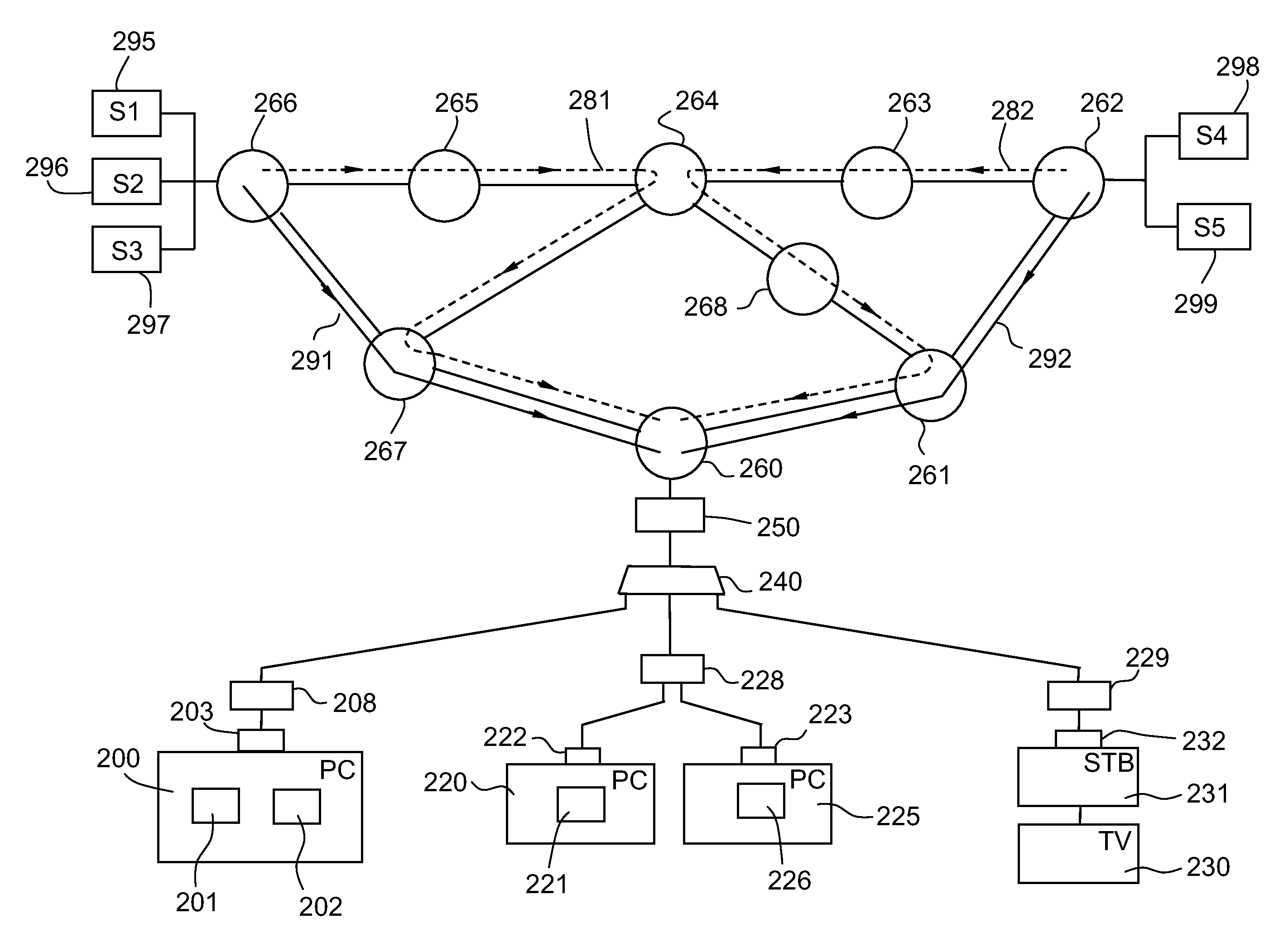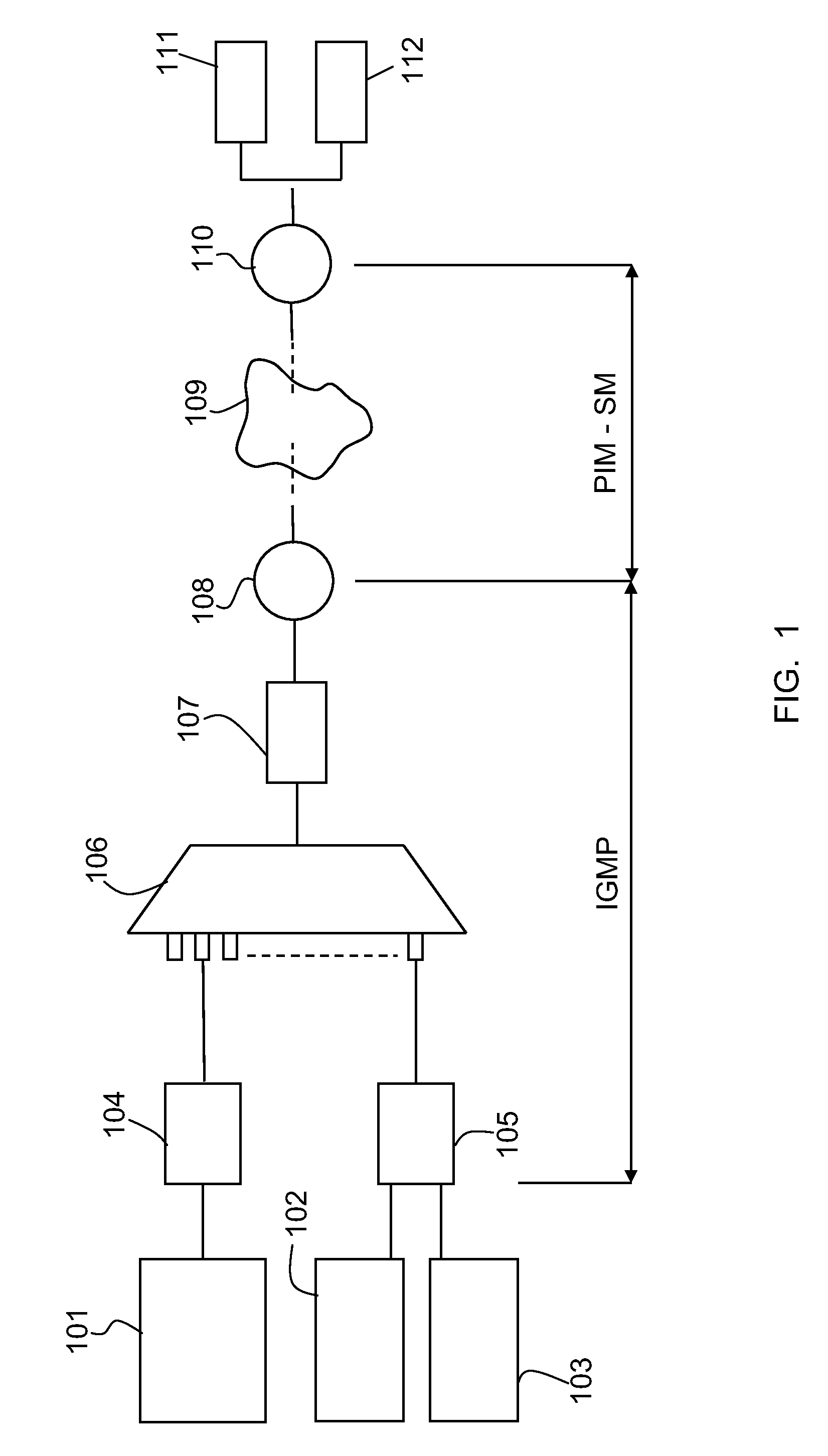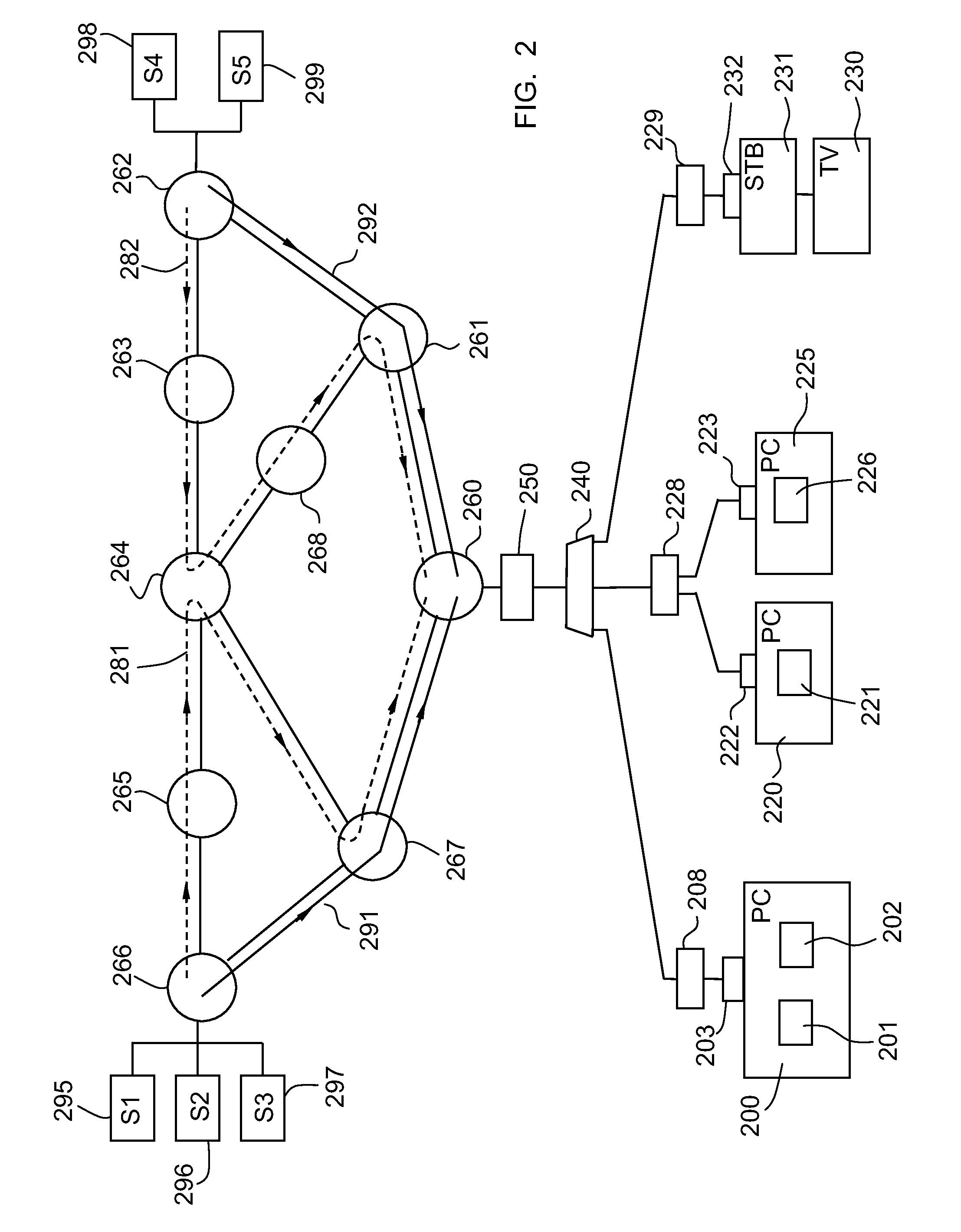Methods and Devices for Managing Multicast Traffic
a multicast traffic and multicast technology, applied in the field of multicast technology in data networks, can solve the problems of insufficient multicast group source ip addresses, inability to find out the source ip addresses of multicast groups, and inability to allow ssm in earlier igmp protocol versions, so as to increase routing efficiency
- Summary
- Abstract
- Description
- Claims
- Application Information
AI Technical Summary
Benefits of technology
Problems solved by technology
Method used
Image
Examples
Embodiment Construction
[0068]FIG. 1 shows a basic example of a multicast system in a data network. In this example, three hosts 101, 102, 103 are connected to the data network through CPEs 104, 105 (CPE: Customer-Premises Equipment). A CPE is a terminal for connecting to the network that is located on the subscriber access line side, which communicates for example by means of a DSL (Digital Subscriber Line) modem. The host 101 is connected to a CPE 104 of a subscriber line, whereas both hosts 102 and 103 are connected to another CPE 105 of another subscriber line. CPEs 104, 105 are connected to a DSLAM 106 (DSLAM: Digital Subscriber Line Access Multiplexer) which directs traffic from the different CPEs 104, 105 through a switch 107 to a router 108 which is in turn connected to an IP (Internet Protocol) network 109. Another router 110 is connected at another point of the IP network 109, which router concentrates the data packets sent by several sources 111, 112 of a multicast group.
[0069]For clarity's sake...
PUM
 Login to View More
Login to View More Abstract
Description
Claims
Application Information
 Login to View More
Login to View More - R&D
- Intellectual Property
- Life Sciences
- Materials
- Tech Scout
- Unparalleled Data Quality
- Higher Quality Content
- 60% Fewer Hallucinations
Browse by: Latest US Patents, China's latest patents, Technical Efficacy Thesaurus, Application Domain, Technology Topic, Popular Technical Reports.
© 2025 PatSnap. All rights reserved.Legal|Privacy policy|Modern Slavery Act Transparency Statement|Sitemap|About US| Contact US: help@patsnap.com



